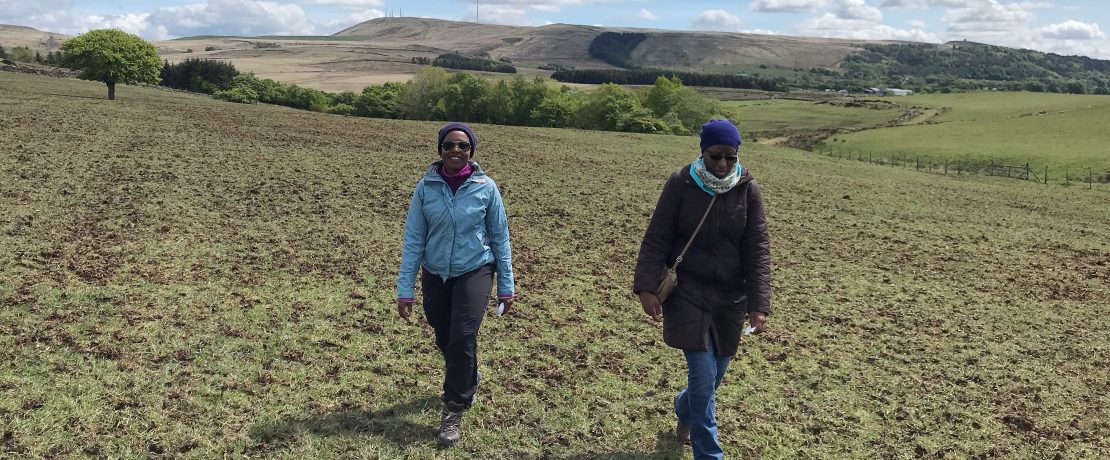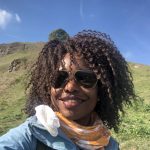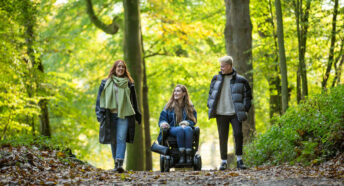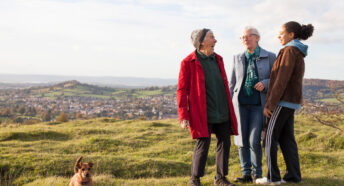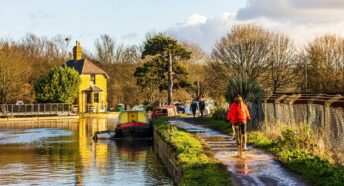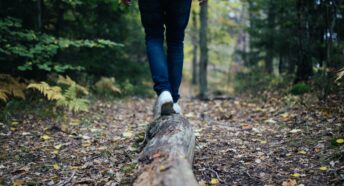Countryside, cows, conversation, women and walking
Victoria Ekpo was one of the founders of FootSteps, a walking and activity group for Black women and their friends in the north west. Here, she reminisces about an eventful Lancashire walking challenge and explains why it is so important to encourage more Black women to embrace the outdoors.
I moved to Liverpool two years ago from London, via Dorset and the Isle of Wight. Anyone would envy the walks these places have to offer, and a part of me is still left on those hills near Old Harry Rocks.
Since moving up to the north west, I’ve discovered the world of open moorlands, peaks higher than Hengistbury Head and cliff walks that wrap around half of the region.
The areas around here provide more than ample walking and hiking outside the Peak and Lake Districts; much closer is the Wirral Way, while the field paths from Crosby to Formby, Bolton, Bury, Rivington (to mention just a few) offer both challenging and meandering opportunities.
2020: a different year
17 May 2020, and the rules had just been changed to allow travel to exercise. Until then, I’d been restricted to the parks and walking routes around Liverpool, looking longingly across the waters and the motorways, resisting the call of the national parks and the other, equally ravishing, walks a little further away.
I wanted something new, fresh and unusual, with far-reaching views, something to blow the cobwebs of the spring lockdown clear away and bring my focus to the joy of the open countryside.
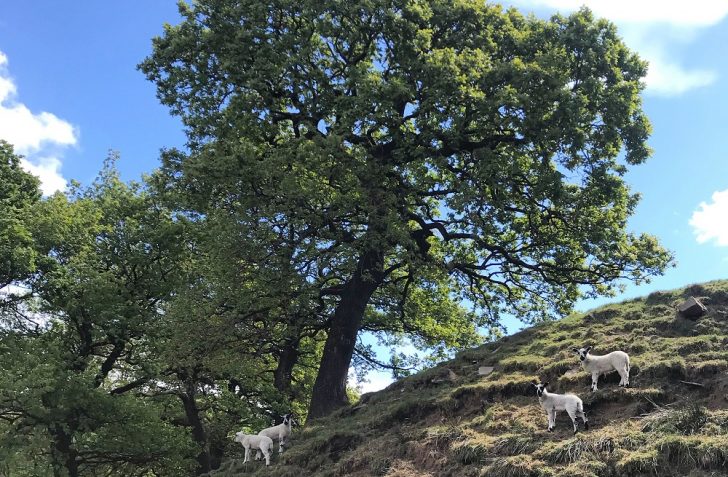
Along with the new freedoms was the allowance that we could form a support network in the form of a bubble of friends and close family members. My friends and I could, if nothing else, meet outdoors.
I asked my friend Blanca to join me on my next hike. For single, female immigrants in England – of which there are many – this was welcome news.
The past few months had been the most isolated and loneliest I had ever been. The news talked about immigrant families of two or more generations living in the same household, but no one mentioned the thousands of young men and women who left their families to chart a life alone here and whose only social circle is the friends they have come to regard as family. Some of us talked about how erased we felt, even in a pandemic.
Tackling Chorley’s Three Peaks
Looking around on the internet for walks that would fit the bill, a particularly amusing route guide by a guy called Mart decided our route. He had done the Chorley Three Peaks – covering Great Hill, Winter Hill and Rivington Pike – in the autumn of 2014.
We decided if a ‘hillwalker with dodgy knees’ can ‘waffle about the great outdoors’ so could we. And my friend Blanca, who had done no more than a few struts around a park, could surely manage – or so we thought.
The 12-mile stamp did not deter us, and Mart painted such an idyllic picture of the climb to Winter Hill that we did not even consider checking other sources or a map!
With the air crisp and the sky clear of any threat of rain, we set out on our walk. From the drive into Rivington, crossing over the reservoir bridge to the Lower House car park, we were teased by the views and looked forward to the walk.
The car park was easy to find and there were a few walkers already returning from a visit to Lord Leverhulme’s terraced gardens. According to our route description, this was to be our last major site of interest.
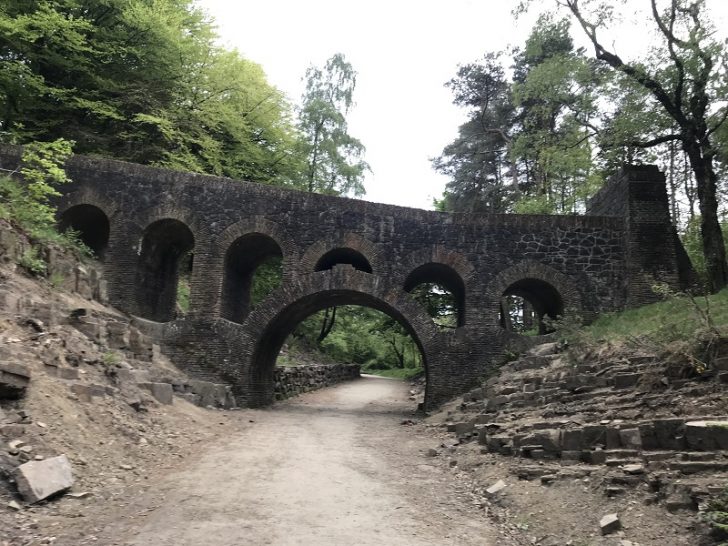
‘They found our bewilderment funny’
We went in the opposite direction and an hour and a half later we encountered a farm field full of cows, menacing in their protection of their young, and renegotiated our way back on to the road, taking the boring route toward Spen Wood. We could then understand why ‘Mart in the hills’ was glad to be rid of the farm fields, no matter how beautiful and tranquil it felt.
We loved Spen Wood, even though a few of the reservoirs were empty. It gave us cover from the midday sun, and apart from a few families, dog walkers and a couple of lovers sitting on the wooden steps, we were pretty much alone.
We realised we had looped the wood twice when we met the teenage lovers on the steps a second time. They found our bewilderment funny and we acknowledged each other and headed, this time, in the right direction towards White Coppice. Apparently, Mart had done the same but failed to mention what the right way is in his guide!
Kindred spirits
My favourite part of walking outdoors is the connections we make with other people sharing that experience.
Just before embarking on what turns out to be a very long climb to Great Hill (no wonder it’s called that), we meet an older couple and had a conversation that not only affirmed to me the reason the English outdoors is my favourite part of the country, but also converted my friend Blanca to the ideal of walking the English countryside.
It turns out the couple lived in nearby Bolton, having moved from Liverpool where they’d lived for many years and where their children were born.
They had spent holidays in Dorset and the Isle of Wight, and we shared memories of both parts of the country, the land and the walks. Standing there in the shade of a tree, observed by sheep ready for shearing, four strangers shared stories of where they call home, and discovered how much more connected we are.
It is this ‘kindredness’ in the open air, the feeling of comradery; that it doesn’t matter where we’ve come from and it is that space there, in that morning, afternoon or evening air, that connects us.
For me, this is the added magic of wandering this beautiful countryside.
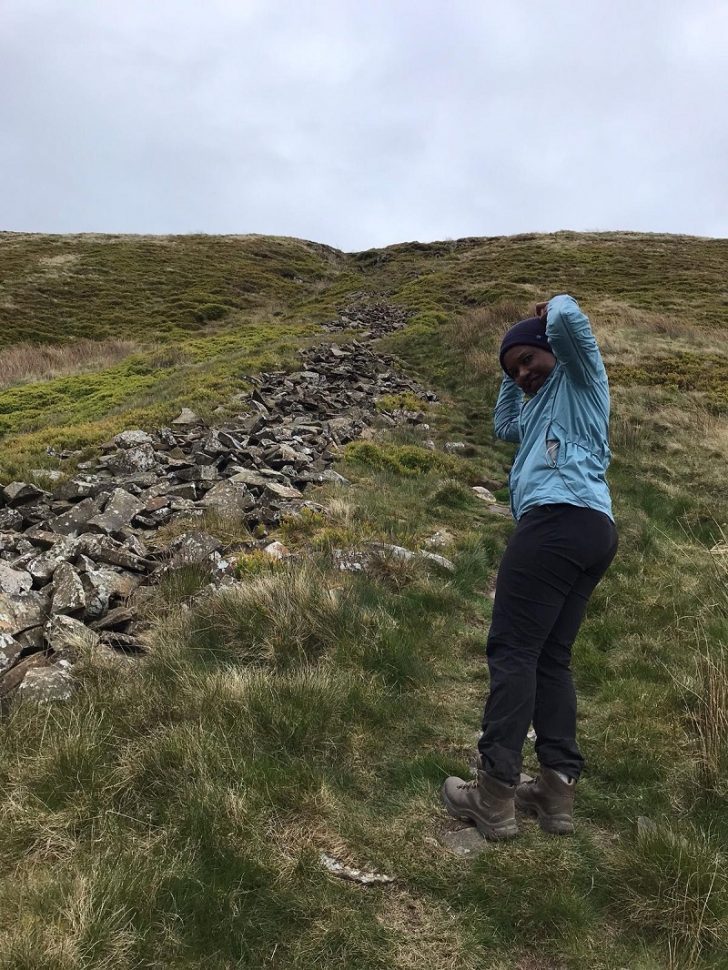
We arrived back at the car park seven hours later, wind-whipped and exhausted but inexplicably happy. Crossing Great Hill proved to be more challenging in the wind and it took all our perseverance to cross the fell. The climb to Winter Hill was punishing and Blanca was a bit traumatised by it.
We arrived Rivington Pike a little late in the day and had to hurry down through the Leverhulme gardens. We promised to return to explore them a bit more – and maybe take some friends along, but save them the 12-mile hike…
The main act of mindfulness
For many black women of all ages, walking and hiking has become the new escape, even before the pandemic. With working from home, getting away from it all becomes the main act of mindfulness.
It means you can stick your tongue out at even the household chores when you return, and promise them some attention on a drearier day – the fresh air does you that much good.
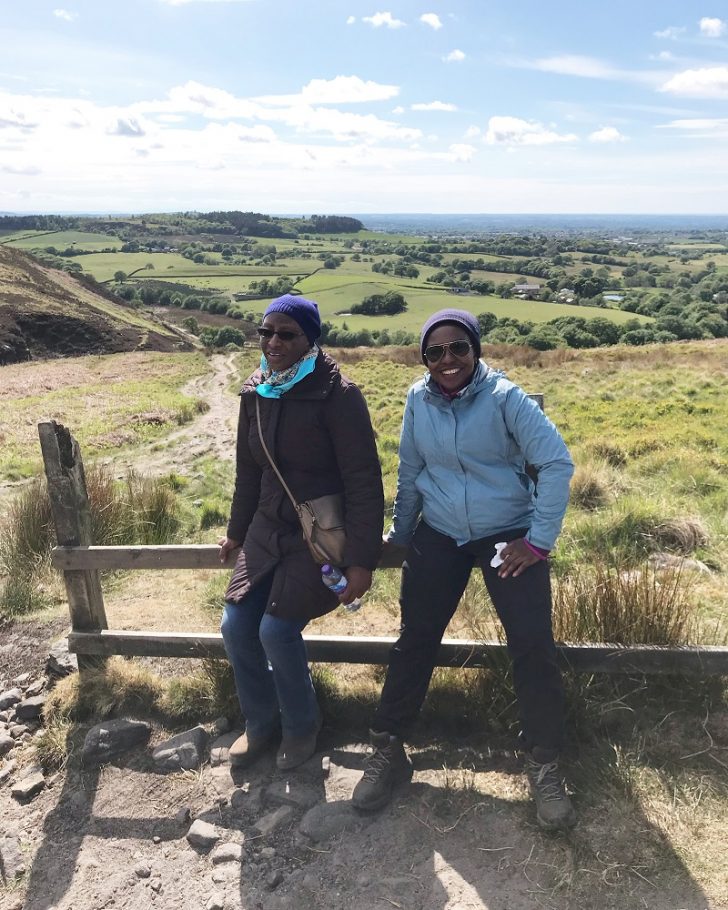
‘A community of converted walkers’
For my black female friends who love the idea of walking but do not take it up, I find it is either that they are concerned about venturing out so far alone or do not feel confident enough in their skills to navigate their way.
For others, the discrimination they are subjected to in urban spaces muddy their perceptions of the kind of welcome they might expect in the countryside, and often this fear of being so far away from help in the event of a racially motivated attack is what keeps some black women away from the great outdoors.
Inviting friends along and continuing to form a community of converted walkers is a good way of encouraging myself to go further and introducing them to the simple joys of walking the English countryside.
Victoria Ekpo is a lecturer, teacher, poet, writer, itinerant hiker and lover of the English countryside. Earlier in 2020, Victoria was the winner of the prestigious outdoor writing competition organised by TGO (The Great Outdoors) magazine and Black Girls Hike UK.
Follow Victoria’s new FootSteps walking group on Instagram @FootStepsNW
